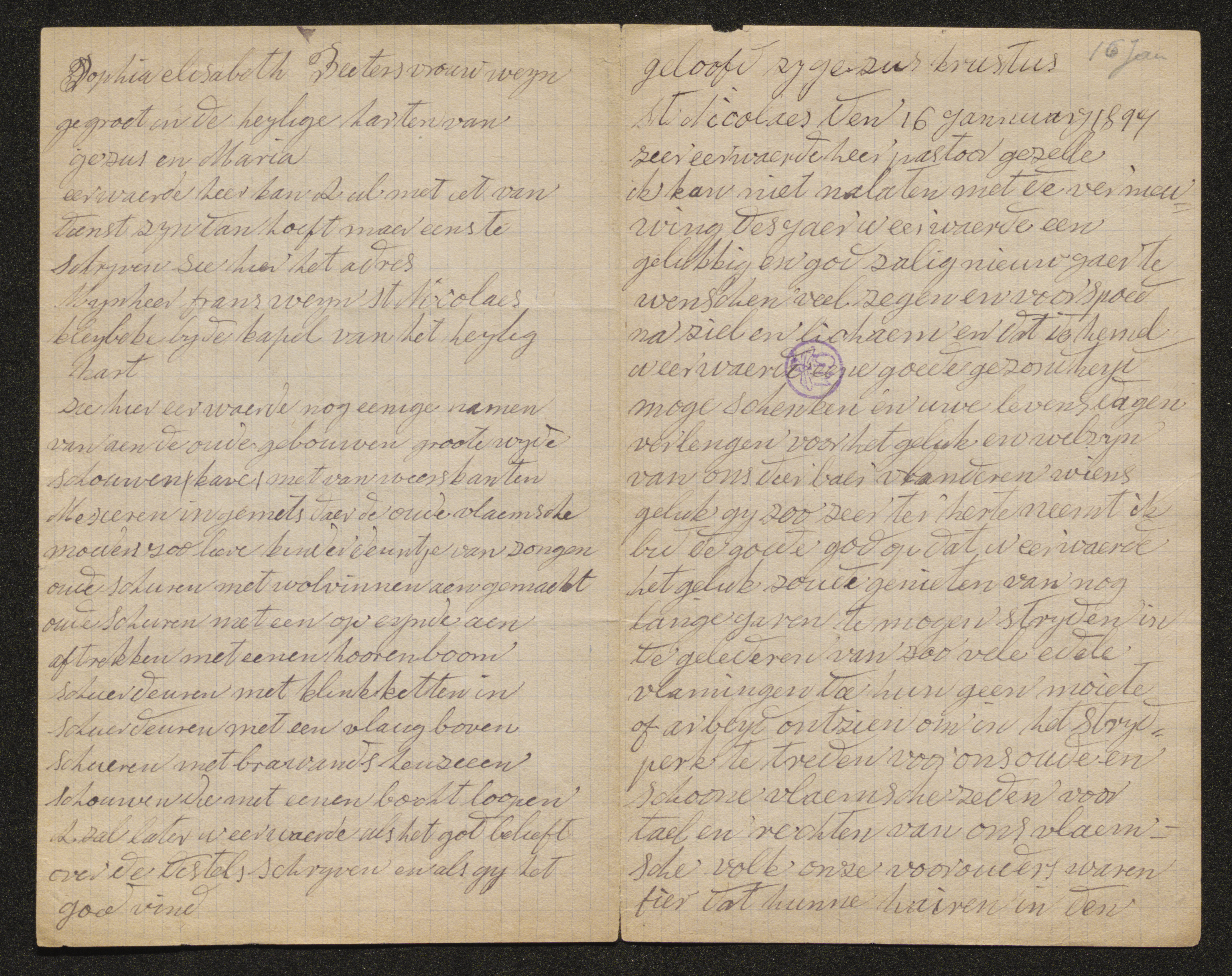|
Sophia Elizabeth Peeters
Sophia Elizabeth Peeters (30 June 1833 – 12 January 1916), also known as Vrouw Weyn, was a prominent Dutch ethnologist who studiously published the folklore of the Waasland, Wase area. She recited and wrote about stories, songs and poems from the region of Sint-Niklaas. Biography Sophia Elizabeth Peeters was born on 30 June 1833 in Sint-Pauwels as the daughter of a Flemish people, Flemish shepherd and a farmer's daughter from Belsele. Her mother died when she was an infant of only twelve days; she was raised by her maternal grandparents. Sophia's childhood was marked by the stories told around the fireside, stories about witches, devils and other supernatural creatures that her grandparents shared. On 16 June 1858, Sophia married Ludovicus Franciscus Weyn (1827–1917), a farmer from Sint-Niklaas. They had eleven children and settled on the farm of Ludovicus' parents in the Kleibeke district of Sint-Niklaas. Storyteller and writer Peeters, also known as Vrouw Weyn (in Eng ... [...More Info...] [...Related Items...] OR: [Wikipedia] [Google] [Baidu] |
Waasland
The Waasland (, archaically "Waesland") or Land van Waas () is a historic region in northern Belgium. It is part of the Belgian province of East Flanders. The other borders are with the Scheldt and Durme rivers (east and south) and, to the north, the border with the Dutch region of Zeelandic Flanders. The (informal) capital and major city of the region is Sint-Niklaas. Waas most likely refers to the soggy soil of the region although the exact etymology is unknown. One possibility is a connection to the English word "wasteland". The swamps that characterized it have long been drained although many fields are still noticeably convex; the result of many years of plowing the topsoil towards the center to improve drainage. Historically, on account of its waterlogged, poor soils the region was thinly populated in comparison to the rest of Belgium and agriculture was by necessity based on holder farms using innovative techniques not usually applied elsewhere even if the farmers had re ... [...More Info...] [...Related Items...] OR: [Wikipedia] [Google] [Baidu] |

